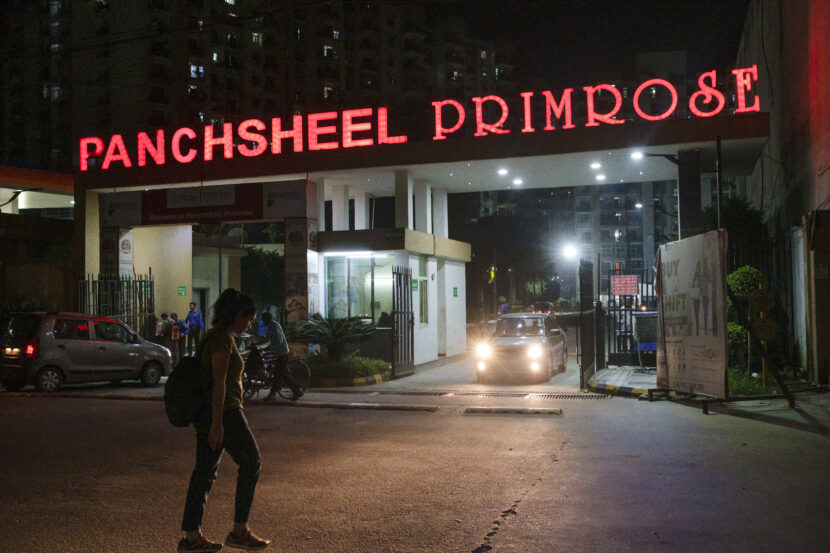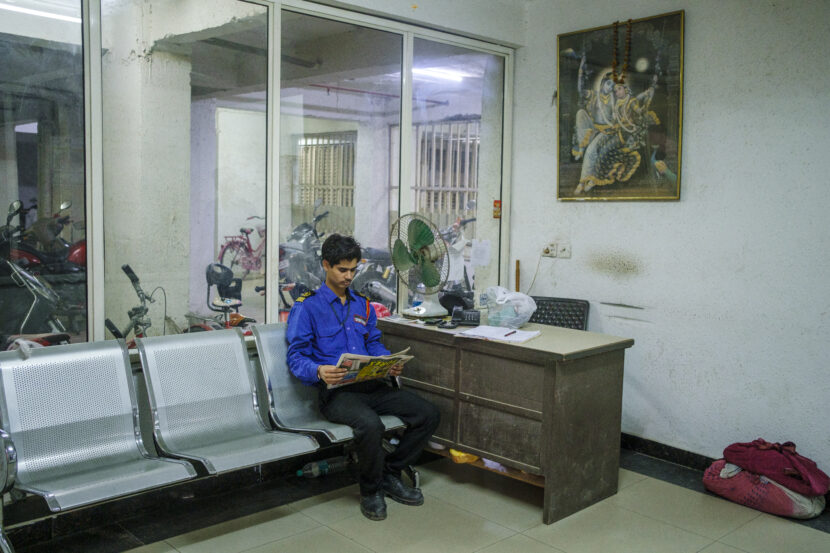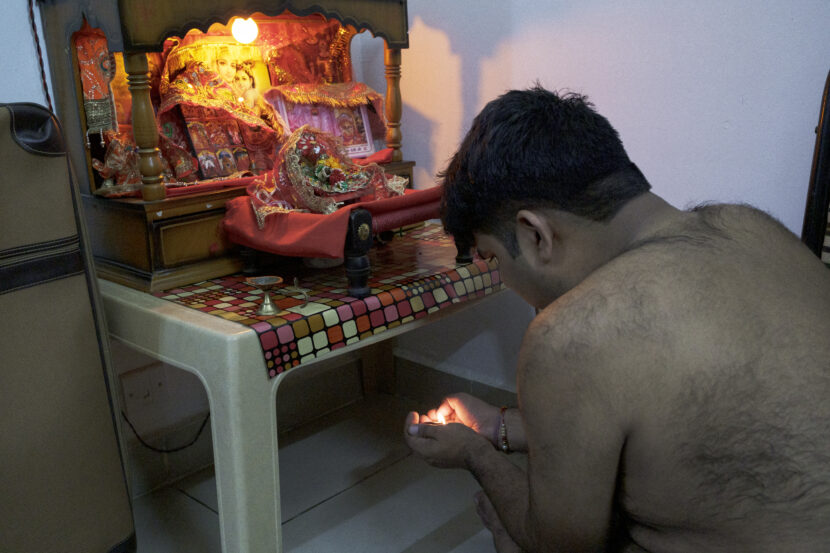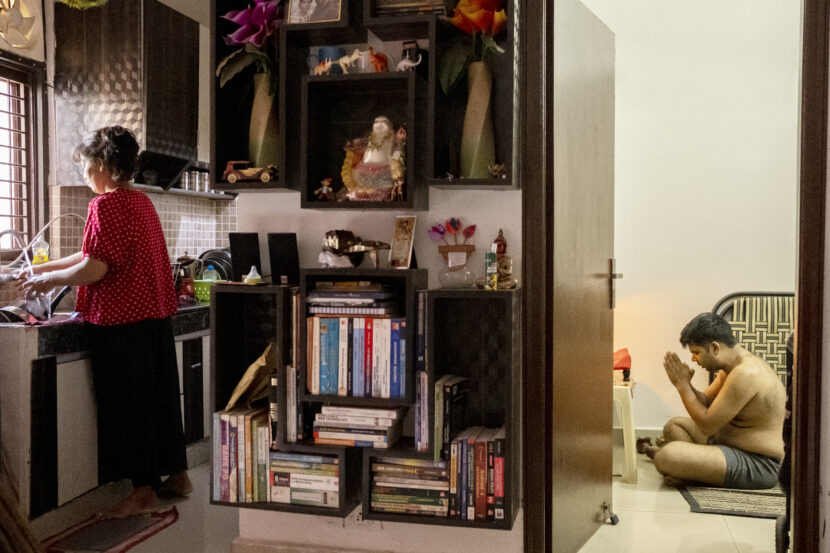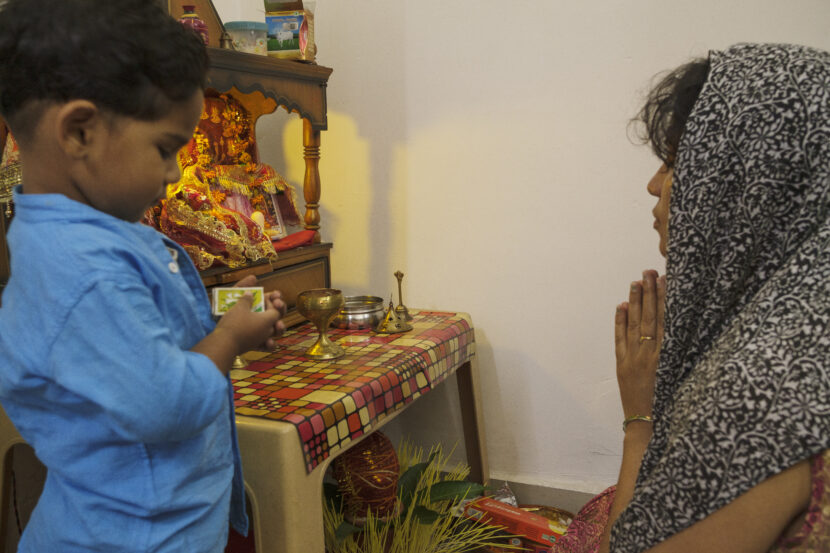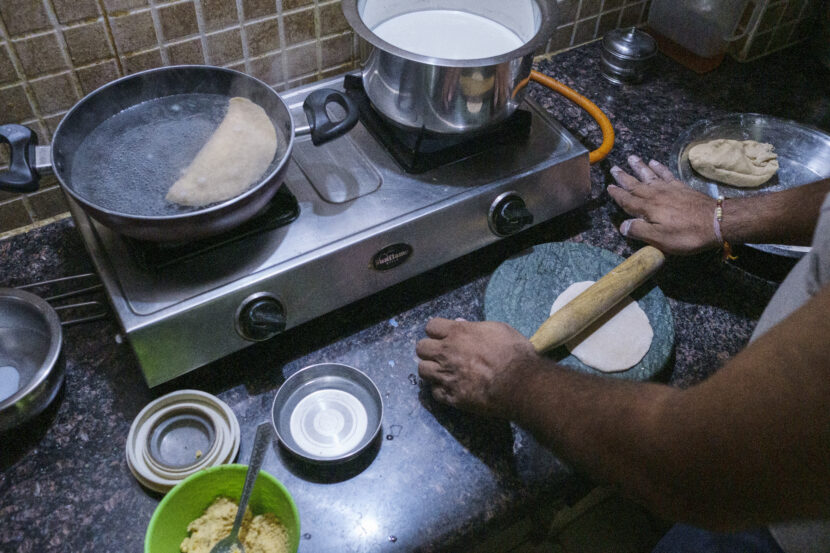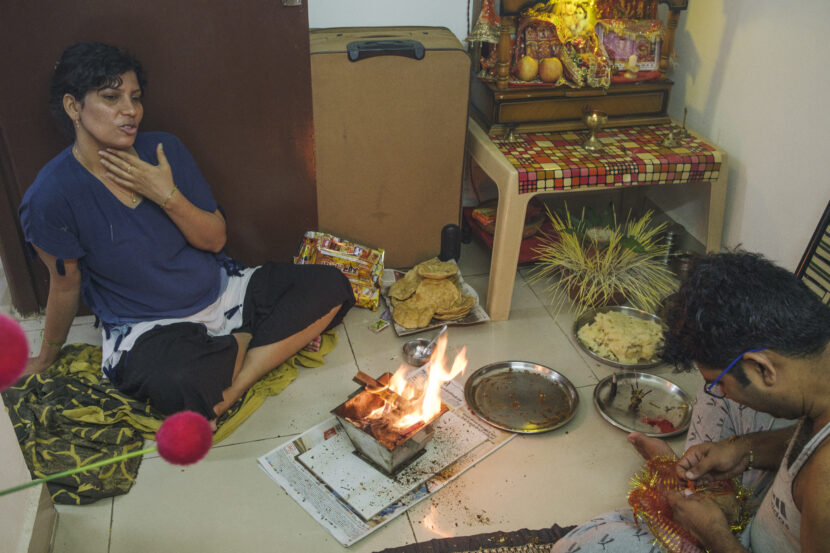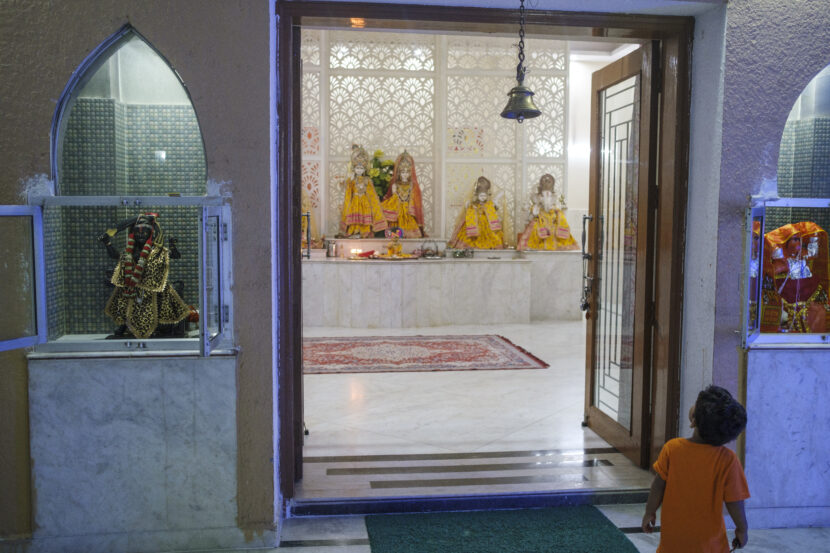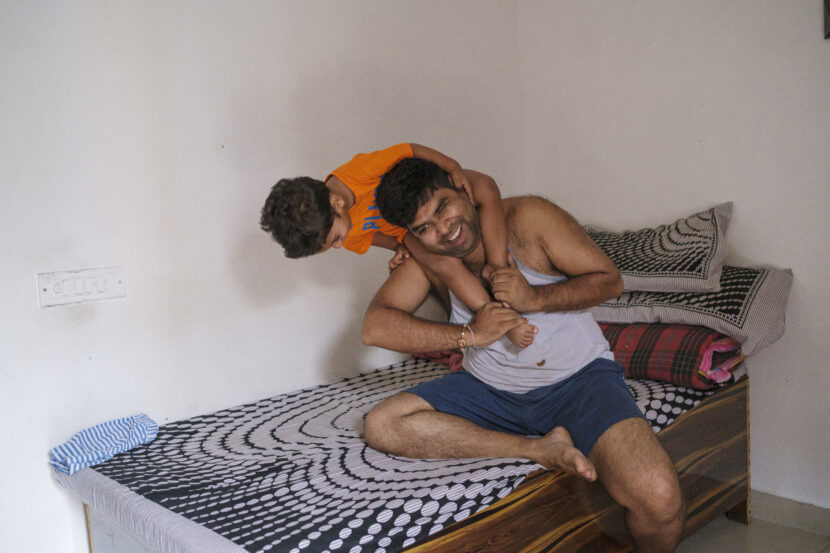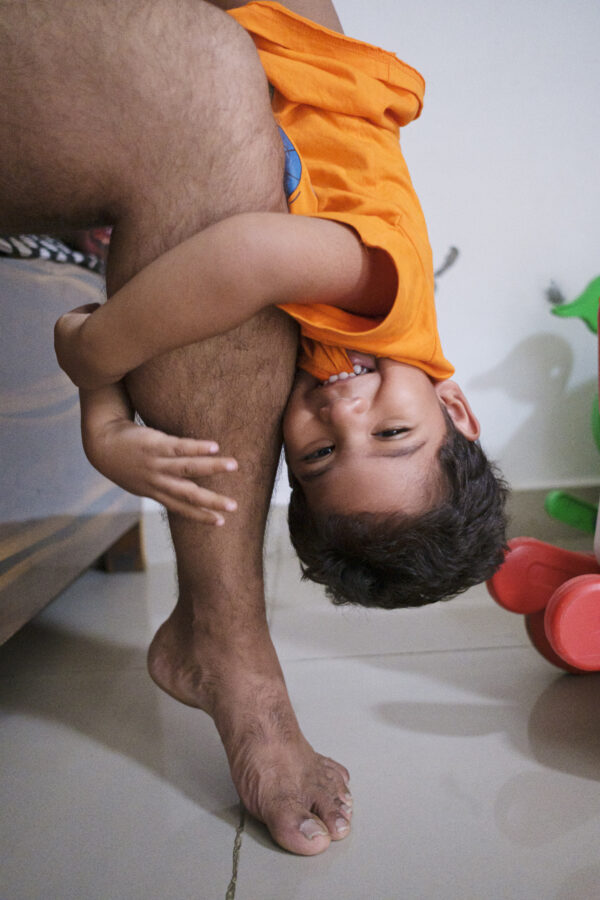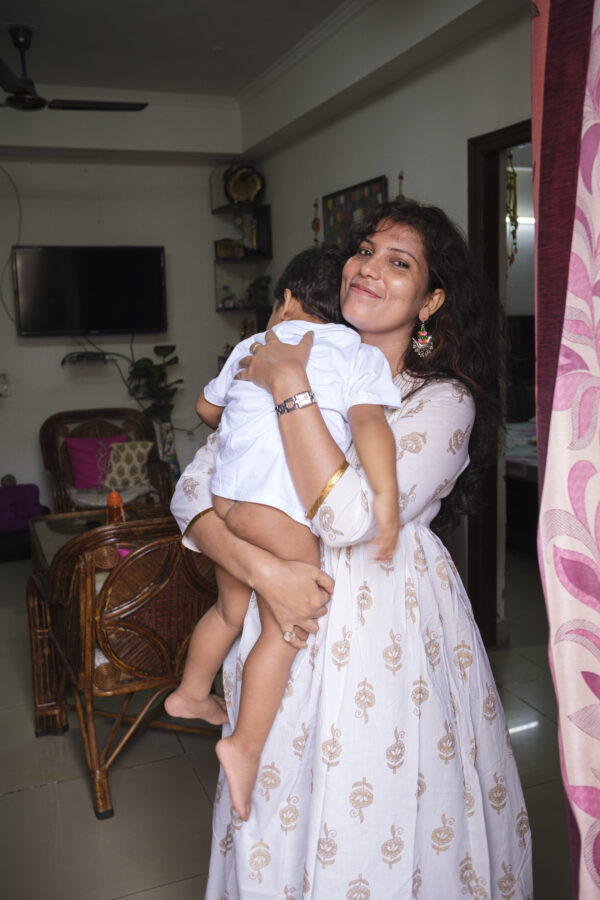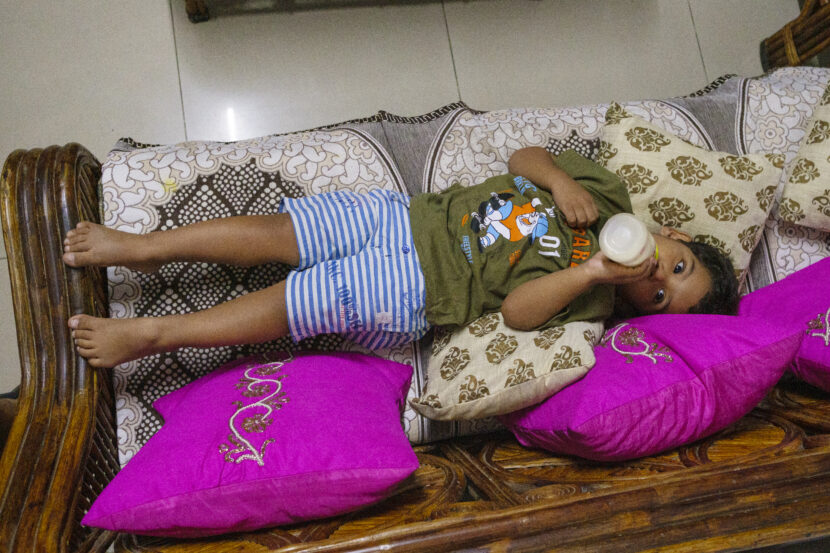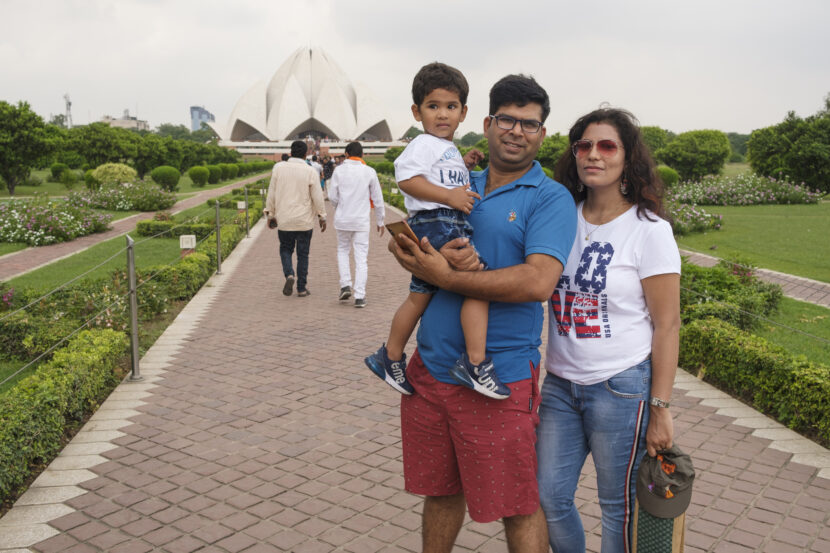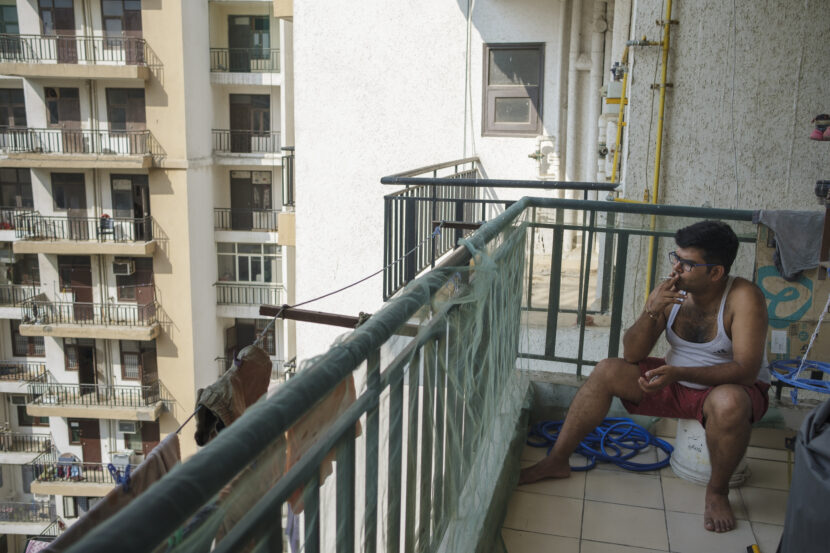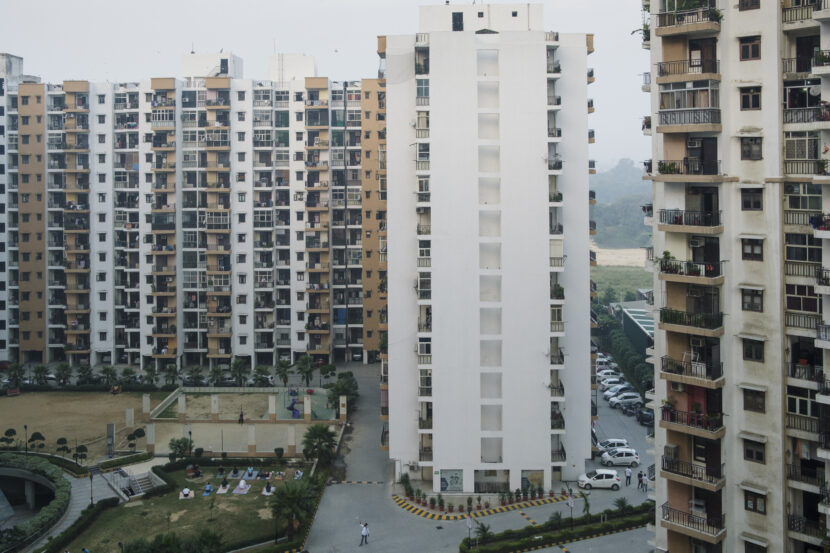Radiography of a modern indian family
October, 2019.
Nineteen kilometers from New Delhi is the industrial city Ghaziabad, where lives a family of Yadav, the caste, composed of Ruchi, Pankaj and their son Atharva.
With the money they raised for a while, they decided to buy a flat in a quiet community called Panchsheel Primrose, made up of 2,000 houses.
This community is protected at the entrance by several security guards who control the access of vehicles and people. In addition, in the access to each block there is also a guard present 24 hours a day.
It has a children’s playground, small tents, gymnasium, swimming pool and a small Hindu temple. In the lawn of the park small groups of people meet daily to practice different activities such as yoga or meditation.
Although the family continues the traditional values of Hindu culture that promotes kindness, humility and courtesy, they are considered a modern family for a variety of reasons:
1 – Their respective parents were good friends and gave them the opportunity to get to know each other and decide to get married after six months. They had many things in common, the same goals and liked each other, the decision was mutual.
Not everyone is given this opportunity, especially in rural areas, where women and girls are forcibly forced into marriage, ignoring the Child Marriage Prohibition Act of 2006. Child marriage has been deeply rooted in Indian culture for centuries and is very difficult to eradicate.
Since 1961 the taking or delivery of the dowry at the time of marriage must be penalized although it continues to develop by tradition and this leads to women suffering abuse, ill-treatment or even death for the non-payment of it.
«Most women are struggling in their lives, whether they are educated or not. India is a male-dominated country». Ruchi
2 – Both work. Pankaj has a bachelor’s degree in Engineering and works as a teacher. Ruchi has a postgraduate degree in Biomedicine and works in the Health Department.
«My grandfather, Mr. Rustam Singh Yadav, was an uneducated person… he worked hard and educated each of his children to be part of middle-class society. Now my father’s generation, who graduated, played their role of highly educating their children. Now we belong to the upper middle class of society». Pankaj
3 – Traditionally, after a wedding a woman goes to live with her spouse’s family.
Ruchi and Pankaj decided to live alone and thus form their own nuclear family.
4 – They shop, cook, take care of their child and do other daily chores in the same way, but because they both work, they have a domestic worker hired for specific tasks such as cleaning the floor of the rooms, washing dishes and kitchen utensils.
In traditional families, the man works outside to earn money while the woman takes care of the household and children.
5 – The way of dressing. Unlike his mother who always wears traditional Indian clothes, Ruchi only wears traditional clothes, such as saree and lehnga, when there are Indian festivals or when he goes to a family wedding and she wears modern clothes for everyday activities, during holidays and when visiting friends.
6 – Number of children.
«My grandmother gave birth to approximately thirteen children, of whom only seven survived due to lack of food and medical facilities. Now my mother planned to give birth to two or three children so that I can provide her with good food and education. I am planning not to have more than two children so that they can lead a prosperous life». Pankaj
This is the radiography of a young Indian family with traditional values that is open to modernization, an example of the future for gender equality in India.
